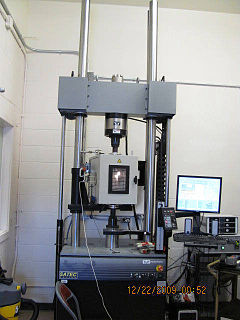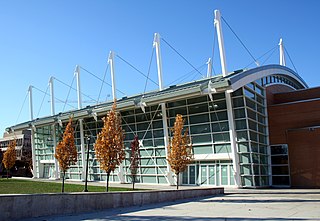A theatre consultant is a consultant who specializes in the design of facilities for the performing arts, equipment for those facilities and the operation of theatre.
Professional consultants provide unbiased, functionally sound, practical consulting and design services for performance and public assembly facilities of all kinds. Owners and architects use their expertise to programme, plan and help with the construction of these kinds of complicated buildings. Their professional organization in the United States is the American Society of Theatre Consultants. The international equivalent organisation is the Institute of Theatre Consultants. There are also many theatre consultants that are not members of these organisations. Unlike the practice of architecture or engineering, theatre consulting is not regulated by professional license, but the Institute of Theatre Consultants accredits theatre consultants on the basis of proven work, operates a Code of Practice and provides training to members.
Consultants are generally expert in building codes and the requirements of the American with Disabilities Act as related to theatres, auditoria, and concert halls. They typically provide detailed design for special theatre systems such as performance lighting systems, stage rigging, orchestra pit lifts, seating (fixed and movable), acoustical canopies and more. Some theatre consulting firms also provide acoustical and/or audio-visual consulting, although those are specialties in their own right.
Theatre consultants may work directly for a facility or organisation, or they may be contracted as a specialty consultant for a project architect or engineer. Services can range from programmatic planning for the development of new facilities, planning for the refurbishment or repurposing of existing facilities, or just (re)design or assessment of specific production systems.

An architect is a person who plans, designs and oversees the construction of buildings. To practice architecture means to provide services in connection with the design of buildings and the space within the site surrounding the buildings that have human occupancy or use as their principal purpose. Etymologically, the term architect derives from the Latin architectus, which derives from the Greek, i.e., chief builder.

Landscape architecture is the design of outdoor areas, landmarks, and structures to achieve environmental, social-behavioural, or aesthetic outcomes. It involves the systematic investigation of existing social, ecological, and soil conditions and processes in the landscape, and the design of interventions that will produce the desired outcome. The scope of the profession includes landscape design; site planning; stormwater management; erosion control; environmental restoration; parks, recreation and urban planning; visual resource management; green infrastructure planning and provision; and private estate and residence landscape master planning and design; all at varying scales of design, planning and management. A practitioner in the profession of landscape architecture is called a landscape architect.
A consultant is a professional who provides expert advice in a particular area such as business, education, law, regulatory compliance, human resources, marketing, finance, health care, engineering, science, security, or any of many other specialized fields.
Engineering management is the application of the practice of management to the practice of engineering.

Architectural acoustics is the science and engineering of achieving a good sound within a building and is a branch of acoustical engineering. The first application of modern scientific methods to architectural acoustics was carried out by Wallace Sabine in the Fogg Museum lecture room who then applied his new found knowledge to the design of Symphony Hall, Boston.
Arup is a multinational professional services firm headquartered in London which provides engineering, architecture, design, planning, project management and consulting services for all aspects of the built environment. Founded by Sir Ove Arup in 1946, the firm has over 16,000 staff based in 96 offices across 35 countries around the world. Arup has participated in projects in over 160 countries.

Building science is the collection of scientific knowledge that focuses on the analysis of the physical phenomena affecting buildings. Building physics, architectural science and applied physics are terms used for the knowledge domain that overlaps with building science.

Noise control or noise mitigation is a set of strategies to reduce noise pollution or to reduce the impact of that noise, whether outdoors or indoors.
The human resource consulting industry has emerged from management consulting and addresses human resource management tasks and decisions. HR Consultants can fill two typical roles (1) Expert Resource Consultant (2) Process/People consultant. These two roles are defined by Steele F. (1975), Kubr,M. ; Niedereicholz (1996), Curnow-Reuvid (2003) and Kipping, K. and Clarck (2014).

The Chartered Institution of Building Services Engineers is an international professional engineering association based in London that represents building services engineers, also commonly known as Mechanical and electrical engineers, Architectural engineers, Technical building services engineers, Building engineers, or Facilities and services planning engineers. It is a full member of the Construction Industry Council, and is consulted by government on matters relating to construction, engineering and sustainability. It is also licensed by the Engineering Council to assess candidates for inclusion on its Register of Professional Engineers.
A legal nurse consultant is a registered nurse who uses expertise as a health care provider and specialized training to consult on medical-related legal cases. Legal nurse consultants assist attorneys in reading medical records and understanding medical terminology and healthcare issues to achieve the best results for their clients. The specialty is a relatively recent one, beginning in the mid-1980s.
A building engineer is recognised as being expert in the use of technology for the design, construction, assessment and maintenance of the built environment. Commercial Building Engineers are concerned with the planning, design, construction, operation, renovation, and maintenance of buildings, as well as with their impacts on the surrounding environment.
Nautilus Entertainment Design (NED) is a San Diego, California based theatre consulting and lighting design firm. NED was formed by lighting designer, Jim Tetlow in 1990. The firm handles the lighting design for over 40 shows a year which include television specials, corporate shows & meetings, Vegas style shows and spectacles. NED is best known for their theatre consulting work in the cruise ship industry providing design and consulting services for over twenty-nine cruise ships with each containing multiple entertainment facilities for showrooms, lounges, and dance clubs.

Architectural engineering, also known as building engineering or architecture engineering, is an engineering discipline that deals with the technological aspects and multi-disciplinary approach to planning, design, construction and operation of buildings, such as analysis and integrated design of environmental systems, structural systems, behavior and properties of building components and materials, and construction management.
The American Society of Theatre Consultants (ASTC) is a professional organization whose main goal is to apprise owners, contractors and/or architects of the services that a theatre consultant can perform, whether it be for a new or renovated facility.
Workplace Strategy is the dynamic alignment of an organization’s work patterns with the work environment to enable peak performance and reduce costs.
Geoprofessions is a term coined by the Geoprofessional Business Association to connote various technical disciplines that involve engineering, earth and environmental services applied to below-ground (“subsurface”), ground-surface, and ground-surface-connected conditions, structures, or formations. The principal disciplines include, as major categories:
George Charles Izenour, MPhys, AIEEE was an author, educator, designer and leading innovator in the field of theatrical design and technology. Best known for creating one of the first electronic theatre lighting dimming system, over the course of his career he invented and developed multiple technologies at the core of modern theatrical productions.

Artec Consultants Inc, is an acoustics design and theater planning firm located in New York City. The company was founded by Frederick Russell Johnson in 1970. In 2013, Artec was integrated into the acoustic design and theatre consulting practice Arup.

Jay O. Glerum was an American theatre consultant and author, best known for his book, Stage Rigging Handbook, Jay O. Glerum was widely recognized in the technical theatre circles as the author of the Stage Rigging Handbook, referred to by many stagehands as the bible of the industry. Published by Southern Illinois University Press and continually in print since 1987, the book has been revised each decade to stay current with the rapidly changing field of technical theatre.








